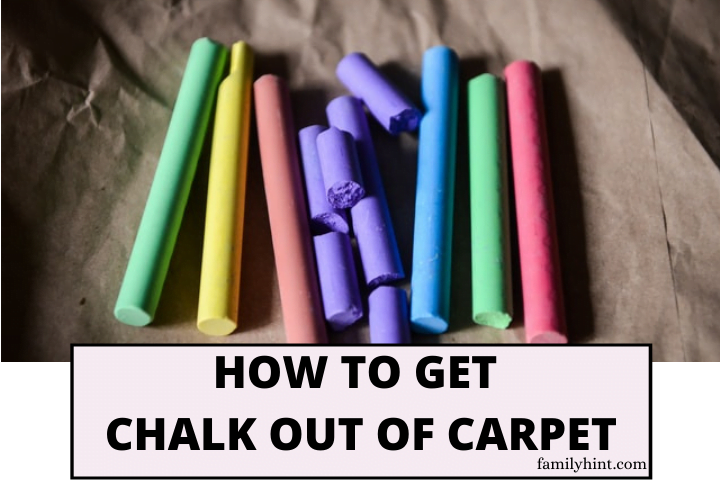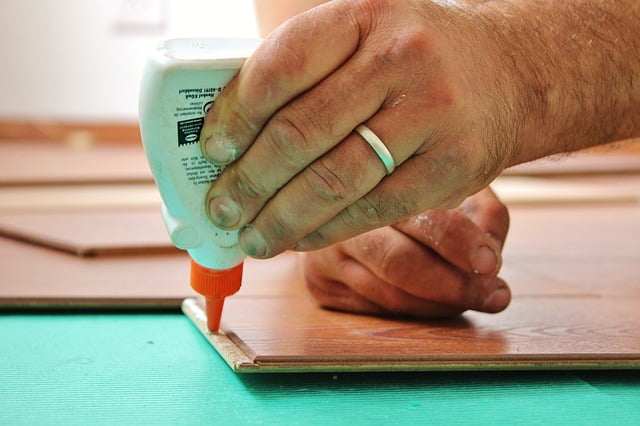A lot of people use fabric softeners, but they don’t always know why. The reason we use fabric softeners is that it makes our clothes feel better, but some people don’t want to use them for different reasons. Some people think that fabric softener is bad for their health. Others just don’t like how it feels when they wear their clothes.
In this article, we are going to talk about how fabric softener works, the pros and cons of fabric softener, how it affects our health, and how we can make our clothes feel softer without using fabric softeners.
- What Is Fabric Softener
- What Is Fabric Softener for
- How Do Fabric Softeners Work?
- Types of Fabric Softener
- Is Fabric Softener Necessary?
- Is It Worth Using Fabric Softener?
- Does Fabric Softener Ruin Clothes?
- Why Is Fabric Softener Bad for Clothes?
- Pros and Cons of Fabric Softener
- What to Use Instead of Fabric Softener (Alternatives to Fabric Softener)
- Fabric Softener Frequently Asked Questions
- Is Fabric Softener Bad for the Environment
- Is Fabric Softener Bad for Your Skin
- Is Fabric Softener Bad for Washing Machine
- Why Should You Avoid Fabric Softener?
- Is It Ok to Use Fabric Softener on Jeans?
- Why Can’t I Smell My Fabric Softener?
- How Often Should You Use Fabric Softener?
- How Can I Make My Clothes Smell Good Without Fabric Softener?
What Is Fabric Softener
Fabric softener is a type of chemical laundry detergent additive that helps to soften the fabric. It is usually added to the wash cycle, and it can be purchased in liquid or dry form.
Fabric softeners are made up of special chemicals and additives that work to remove the natural “rough” texture of fabrics and make them feel softer to the touch.
Fabric softeners also help reduce static cling, which is the tendency for fabrics to attract dust particles and other debris.
What Is Fabric Softener for
Fabric softeners do a great job to reduce static cling and make clothing feel softer.
Some people use fabric softeners as part of their laundry routine because they want their clothes to smell good or because they prefer not to have any wrinkles in their clothing after washing them at home.
How Do Fabric Softeners Work?
Fabric softeners work by coating your clothes with a thin layer that makes them feel softer than normal.
The way you wash your clothes also affects how well fabric softeners work because if you wash your clothes in cold water instead of warm water then they will not be as effective since hot water opens up the bonds between fibers so that they can be coated with softening agents much easier than cold water would.
Types of Fabric Softener
We all love the soft, fluffy towels and sheets that come out of the dryer. But what makes them so soft? The answer is fabric softener.
A fabric softener can be added to either the wash or dry cycle of your laundry.
There are three basic types: liquid, dryer sheets, and dryer balls.
Liquid Fabric Softener
Liquid fabric softeners work by adding a small amount of water-soluble oil to your washing machine. When your clothes tumble around in the water, this oil coats them with a thin layer that helps keep them feeling soft and smooth after they are washed and dried.
Dryer Sheets
Dryer sheets are made from fabric sheets impregnated with chemicals designed to soften fabrics as they tumble around in the dryer.
These chemicals coat your clothes with an oily residue that makes them feel softer and smell fresher than they would otherwise (though some people find these scents unpleasant).
Dryer Balls
Dryer balls are small plastic or metal balls that are tossed into the dryer along with your clothes during drying cycles to help fluff up fabrics without using heat or chemicals.
They work by bouncing around in your dryer drum, causing friction between each other.
Is Fabric Softener Necessary?
As long as you’re using a good detergent and washing machine soap to wash your clothes, you probably don’t need a fabric softener. You should consider skipping the fabric softener altogether because most of them contain chemicals that can irritate sensitive skin or cause allergies.
The only exception would be if you have particularly delicate or sensitive skin and need something with fewer chemicals in it for cleaning purposes.
Is It Worth Using Fabric Softener?
Fabric softener is a detergent additive that improves the feel of your fabrics, making them more comfortable against your skin. Fabric softeners work by coating the fibers in the fabric with a thin film of chemicals that help reduce static cling and repel water.
Does Fabric Softener Ruin Clothes?
Fabric softener is a great way to keep your clothes feeling soft and smelling fresh. It can also help extend the life of your clothing by reducing the wear and tear on them. However, fabric softeners can ruin clothes over time if used incorrectly or too much at once.
Why Is Fabric Softener Bad for Clothes?
If you use too much fabric softener, it can leave a residue on your clothes that attracts dirt and stains. This residue also makes your clothes less absorbent, meaning they’ll take longer to dry. Finally, if you use too much fabric softener, it can make your laundry smell like chemicals.
Pros and Cons of Fabric Softener
Fabric softeners are a great way to make your clothes smell good and feel softer. However, these products can have some positive and negative side effects. Here are some of the pros and cons of fabric softener:
But what are the pros and cons of fabric softener?
Pros of Fabric Softener
Softness: Fabric softeners leave your clothes feeling softer, smoother, and more comfortable than they would otherwise. This is especially true if you have sensitive skin or if you’re just looking for something to soften up scratchy fabrics, like wool.
Shiny appearance: Fabric softeners also make your clothes look shinier by reducing static cling. This makes it easier to iron your clothes without damaging them, and it helps keep wrinkles away longer too.
Moisturizing effect: Most fabric softeners contain a moisturizer that helps keep your clothes from getting dry and coarse over time. This is especially important if you live in an area where the climate is dry or if you tend to hang out in air-conditioned buildings all day (like most office buildings).
Cons of Fabric Softener
Sticky residue on clothing: Fabric softeners leave a sticky residue on clothing that is hard to remove. This residue can also attract lint and dust particles, making it look dingy and dirty.
Health issues: Fabric softeners have been linked to health problems such as asthma, headaches, dry skin, and eczema. Some people are allergic to the chemicals found in fabric softeners.
Mildew growth: The chemicals in fabric softeners can cause mildew growth in dark-colored fabrics or on moist areas like armpits or collars. This mildew caused by fabric softener will stain your clothes and it can be hard to remove.
What to Use Instead of Fabric Softener (Alternatives to Fabric Softener)
In the battle of fabric softener vs. dryer sheets, it turns out that dryer sheets are the winners. Fabric softeners leave a film on your clothes and can irritate anyone with sensitive skin or allergies.
So what should you use instead? Here’s a list of alternatives to fabric softener:
Vinegar
Vinegar is a great alternative to fabric softener because it helps remove soap residue from your clothes while also helping prevent static cling. Add two cups of white vinegar to your rinse cycle when washing your clothes and then allow them to air dry outside or in the sun.
You can also add 1/2 cup of vinegar directly into the washing machine with each load.
Baking Soda
Baking soda works similar to vinegar by removing soap residue from clothing and preventing static cling, but it also has additional benefits that make it even better than vinegar at eliminating odors from fabrics.
A cup of baking soda added directly into the wash cycle will do wonders for getting rid of unpleasant smells on clothes like food or smoke stains.
Lavender Water
This lavender water recipe is super simple to make, and it works like a charm. Just fill an empty spray bottle with 2 cups of distilled water, then add 20 drops of lavender essential oil. Shake well before each use. Spritz onto clothing as needed to soften and add fragrance.
Citrus Oils
You can also make an easy citrus oil spray by combining equal parts lemon oil or orange oil with distilled water in an empty spray bottle (just like we did with our lavender water above).
Fabric Softener Frequently Asked Questions
Is Fabric Softener Bad for the Environment
If you’re concerned about the environment, you might be wondering if fabric softener is bad for the environment. The answer is that it can be. If you use too much of it, it can add to your water usage and cause problems with the health of local streams and rivers.
Is Fabric Softener Bad for Your Skin
Fabric softener often contains chemicals that are absorbed into our skin when we use them on our clothes. These chemicals can irritate our skin or even cause rashes if they get into open wounds or broken skin. You should always wash your hands after handling fabric softener sheets or liquid products.
Is Fabric Softener Bad for Washing Machine
Fabric softeners aren’t bad for washing machines in general, but they can cause problems if you don’t remove them from clothing before washing them again without softeners.
If you keep using clothing with fabric softeners on them over and over again, the chemicals will build up in your machine and make it harder to clean later on down the line.
Why Should You Avoid Fabric Softener?
Fabric softeners contain perfumes that can cause allergic reactions in people with sensitive skin or asthma. These perfumes may also irritate your eyes or nose if you have allergies.
Fabric softeners also contain chemicals like sodium lauryl sulfate (SLS) that can cause damage over time if you use them too often or regularly.
Is It Ok to Use Fabric Softener on Jeans?
You shouldn’t use fabric softener on jeans because it can cause your jeans to become stiffer over time due to the build-up of chemicals in the material used in making jeans. Regular usage of fabric softener will cause dyes used in making denim jeans to fade faster than usual as well as cause your jeans to feel harder than normal when worn.
Why Can’t I Smell My Fabric Softener?
If you’re using a new product, it may take a few washes for it to activate and release its scent. In the meantime, hang your clothes up outside to air them out after washing.
How Often Should You Use Fabric Softener?
It’s best to use fabric softener sparingly. Overusing fabric softener can cause damage to your clothes over time. It can also irritate sensitive skin and worsen eczema or other skin conditions.
How Can I Make My Clothes Smell Good Without Fabric Softener?
Use baking soda or vinegar in the rinse cycle instead of fabric softener. Both of these work as natural deodorizers that will help get rid of lingering odors and leave your laundry smelling fresh. Also, keep your laundry hamper clean and uncluttered so that there’s nowhere for bacteria to grow and spread throughout your home.



